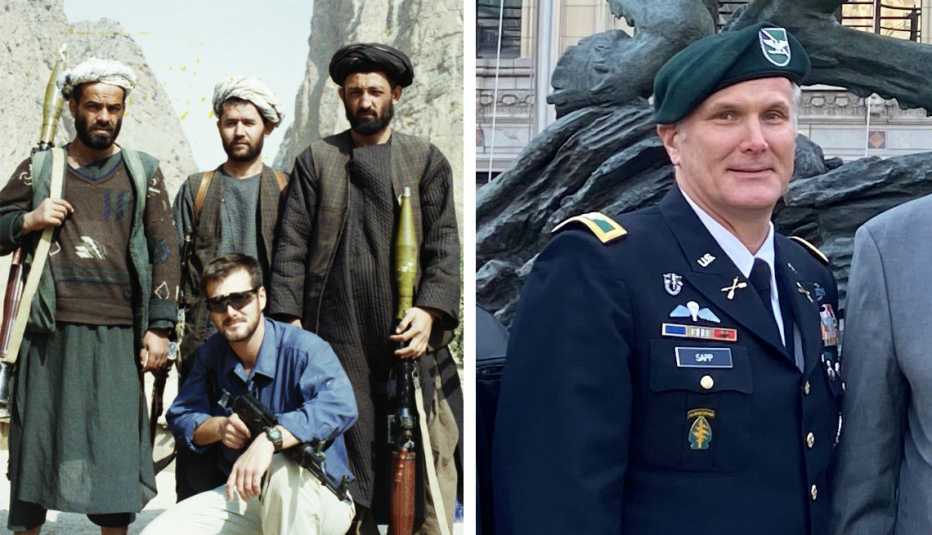AARP Hearing Center


It’s hard to believe that the 9/11 terrorist attacks were nearly 22 years ago. When the first plane hit the World Trade Center, I was underwater off Key West, Florida, taking part in the Special Forces combat diver course.
When I surfaced, we were at war. I was a Green Beret captain about to turn 29, and by an accident of history, I became the first American soldier behind Taliban lines in Afghanistan after 9/11. I was detailed to the CIA’s Team Alpha, and we arrived in-country on Oct. 17, 2001.


You can subscribe here to AARP Veteran Report, a free e-newsletter published twice a month. If you have feedback or a story idea then please contact us here.
Over the next two decades of war, I served multiple tours in Afghanistan and Iraq. I lost many friends. Now I’m a 50-year-old colonel about to retire. Although I’m not a New Yorker, I currently work in Manhattan, and every weekday I am close to Ground Zero, where it all began in 2001.
It’s an odd feeling to walk past the Horse Soldier Statue at Ground Zero — the formal name for it is America’s Response Monument — because that’s what I did, riding through the mountains into battle as my Green Beret comrades called in air strikes on the Taliban and Al Qaeda.
What people sometimes forget, however, is that we didn’t do that alone. Alongside us were Afghan fighters from the Northern Alliance, mostly ethnic Uzbeks and Tajiks who had been brutally persecuted by the Taliban, whose rule was one of medieval barbarism.
Those Afghans were the reason we toppled the Taliban regime in late 2001. They were incredible fighters — magnificent horsemen, brave, determined and willing to die for our mutual cause. Some of them did die in 2001. A number were killed in the subsequent 20 years, leaving large families behind. Others survived and are once again faced with Taliban oppression.
There are a number of sacred responsibilities that are part of an American soldier’s creed. One of them is that we leave no one behind. I lived that in November 2001 when my friend Mike Spann, a former Marine officer turned CIA paramilitary, was killed. It took us three days to recover his body.


Another responsibility is that we are true to our allies, that we help those who helped us. We don’t abandon them when they no longer suit our needs or when it is difficult or politically inconvenient. That is why the tragic withdrawal from Afghanistan in the summer of 2021 was so hard for me.
Our country let down some of those men I had fought with in 2001. We just left.
But the greatness of the United States rests in its people, not its government. And when, for whatever reason, our government leaves a vacuum, there are always people who will fill it.
That’s why I helped set up a nonprofit charity to assist the men who fought alongside us after 9/11 and their families. We named it Badger Six, a call sign Mike and I had used in 2001.





























































More From AARP Veteran Report
I Wrote the Guidebook for Vets Joining the Federal Government
A Navy veteran worked out how to navigate the complex USAJOBS.com hiring process, so you don’t have to
Moviemaker Honors Great-Uncle Pilot Who Was Killed Saving Comrades
Lt. Royal Stratton died in the Pacific in 1945 as he rescued nine downed fellow airmenHere’s What Veterans Should Do About a Bad Back
Get moving, change your posture — and don’t put off decisions6 Canines Who Served With Honor
Faithful best friends in trenches, foxholes, ships, aircraft and POW camps